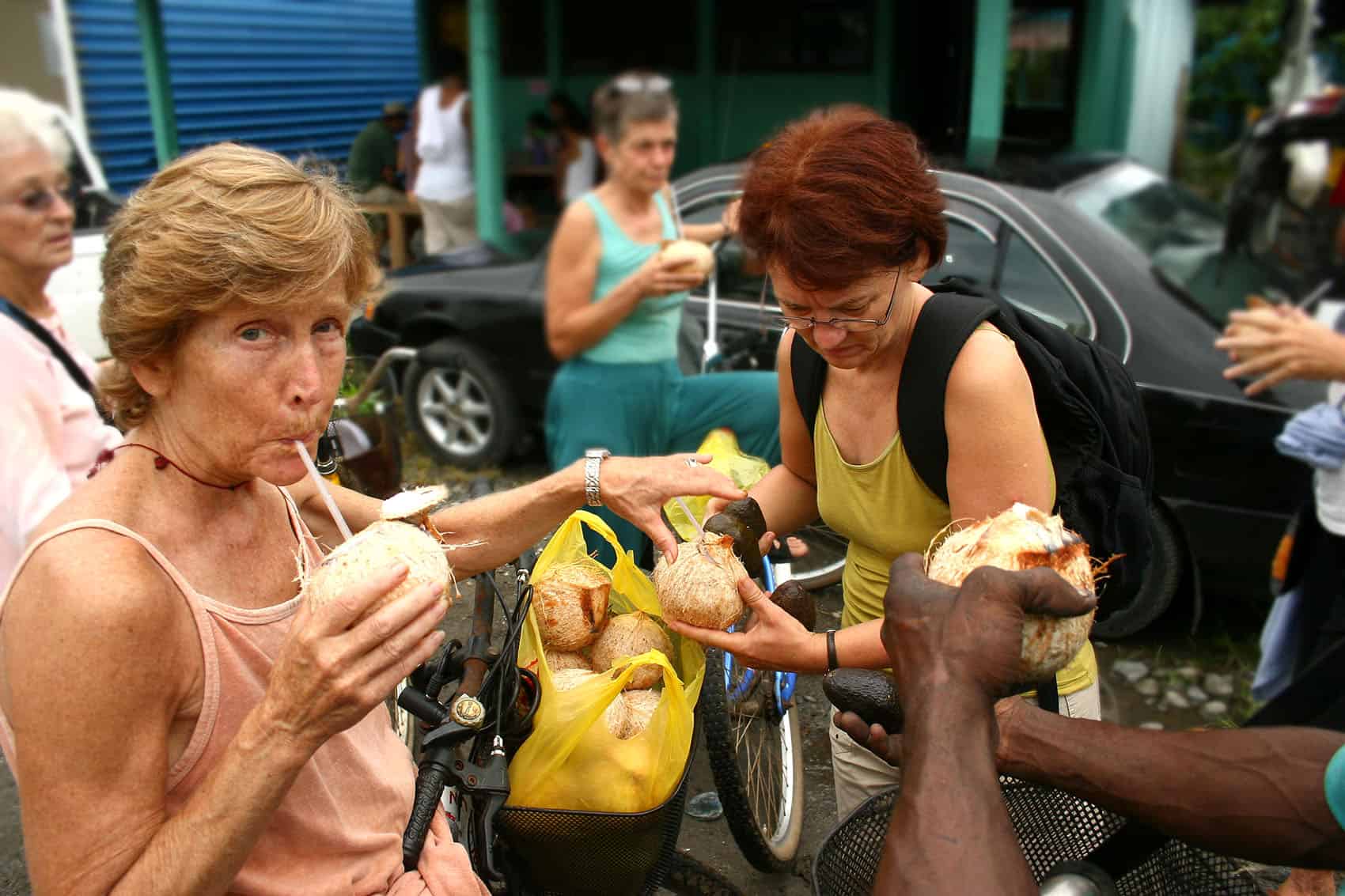A recently released survey of Ticos’ perception of foreigners in Costa Rica, conducted by the National University’s Social Studies Institute, or IDESPO, found that many Costa Ricans view U.S. expats as “wealthy” and “powerful,” while they believe Nicaraguans “come to work” and “seek the well-being of their families.”
Unlike their perceptions of other foreigners in Costa Rica, the Ticos who were interviewed largely viewed U.S. citizens as “tourists who come with dollars and contribute to the country’s [development],” or “entrepreneurs who come to establish businesses.”
IDESPO interviewed 1,000 Costa Rican residents across the country via telephone in May 2012. Although the interviews took place more than two years ago, the survey’s conclusions were released this month. Despite the lag, the study’s authors believe the results still accurately describe ongoing general perceptions that have changed little.
Of those interviewed, 47.5 percent were men and 52.5 percent were women between the ages of 15 and 80.
Responses to the survey – titled “Construction of Public Opinion Toward Immigration in Costa Rica” – included phrases with some pretty harsh language directed at U.S. citizens, such as: “They think the world revolves around them”; “they treat us as inferiors”; “they think they’re superior to us”; and “they have inflated egos.”
But Ticos also voiced piropos, saying Gringos are “admirable people,” “very hard working,” “good people,” “people who come to work in the community,” “very friendly,” “sociable,” “tranquil,” “humble,” and “intelligent.”
The survey also sought to explore the daily interaction between Ticos and other foreigners, including Nicaraguans, Colombians, Dominicans, Haitians, indigenous Panamanians, Spaniards, Chinese (and other Asians) and “Africans.”
The nationalities of foreigners discussed in the survey were not selected by IDESPO, but rather by the respondents themselves, who were asked to name the nationalities with which they are familiar in Costa Rica.
Some mentioned indigenous Panamanians because up to 11,000 Ngabe and Buglé people from Panama enter Costa Rica each month to harvest coffee and bananas, according to the Immigration Administration. Most live in the border region between Panama and Costa Rica, and many enter Costa Rica in the early mornings and return to Panama after a long workday.
Respondents also listed “chinos,” which in Costa Rica is a rather politically incorrect term that can refer to Chinese people or any Asian in general.
Ticos also named “Africans,” ignoring the fact that more than a billion people live in the world’s second-largest continent, which isn’t a country.
Included in the survey were questions such as: “What do you think about immigrants, and where do you get the information [to form opinions]?”
More than half of respondents – 53 percent – said foreigners who come here to work seek opportunities and a better life. Some 16 percent said foreigners migrate here to take jobs that Costa Ricans don’t want, which they said helps boost the economy.
Foreign laborers – particularly Nicaraguans – mostly work in agriculture (sugarcane, pineapple, bananas, yucca and oranges), tourism, construction, private security and domestic labor. Fewer than 12 percent of respondents said, “Some come to work while others come to do harm.”
The survey asked respondents to openly express their opinions, ideas and notions about each immigrant group.
Regarding Nicaraguans, 40 percent of respondents said they are “hard-working,” while 25 percent had equally positive and negative reactions, such as, “there are good people and bad people,” or, “some come to work while others come to steal.”
Just over 14 percent said Nicaraguans come to Costa Rica to improve their living conditions, and 12 percent classified them as “criminals.” Barely 4 percent acknowledged that Nicaraguans are exploited or discriminated against.
Other Ticos said Nicaraguans are “people who are tired of living with limitations in their country,” and are “people who are marginalized and come to Costa Rica to seek the well-being of their families.”
Guillermo Acuña, director of IDESPO, said “perceptions change according to current events and historical context.” For example, this survey was conducted in the context of an ongoing border row between Nicaragua and Costa Rica over Isla Calero, a disputed wetland area near Costa Rica’s northeastern coast.
Regarding “chinos,” Ticos think they are “hard-working,” “geniuses,” “creative,” and people who “come to cook and open restaurants.” Negative opinions said they are “anti-social,” “stingy,” and “greedy.”
Respondents said Spaniards are “hard-working,” “educated,” “professional,” “high class,” and “from a superior country.” They also called Spaniards “stupid,” “spiteful,” and “arrogant.”
To try to explain the vast differences and sometimes contradictory opinions Ticos have about foreigners, Acuña said that in general, Costa Ricans do not view foreigners negatively unless they feel their jobs or lifestyle are threatened. Negative opinions also are often associated with perceived links to crime and public insecurity, or when foreigners “come to impose.”
The importance of measuring these perceptions, Acuña said, is their links to behavior.
“A negative perception can lead to rejection that is expressed through discourse, such as in discriminatory jokes or xenophobic commentary on social media networks. It also can lead to segregation, as when Costa Ricans isolate others who they feel are different,” Acuña said.
Origins of perception
In forming their beliefs about foreigners, the main source for Ticos’ thoughts on the subject is – according to respondents – “personal opinion” (28 percent). But one in five respondents said the mindset about foreigners is shaped by mass media, and 17 percent said their views are shaped by family members, work colleagues and friends. Only 15 percent said their opinions come from personal experience and having interacted with foreigners.
Asked about mass media, Ticos said news organizations have an agenda that focuses on negative stereotypes toward certain nationalities. For example, 30 percent of respondents said the news media tend to characterize immigrants as “violent people” who commit crimes and come to Costa Rica to cause harm.
Said Acuña: “Local news media insist on naming certain nationalities [in crime reports] even when Costa Ricans are involved [in the crimes]. But we tend not to pay attention to that.”






